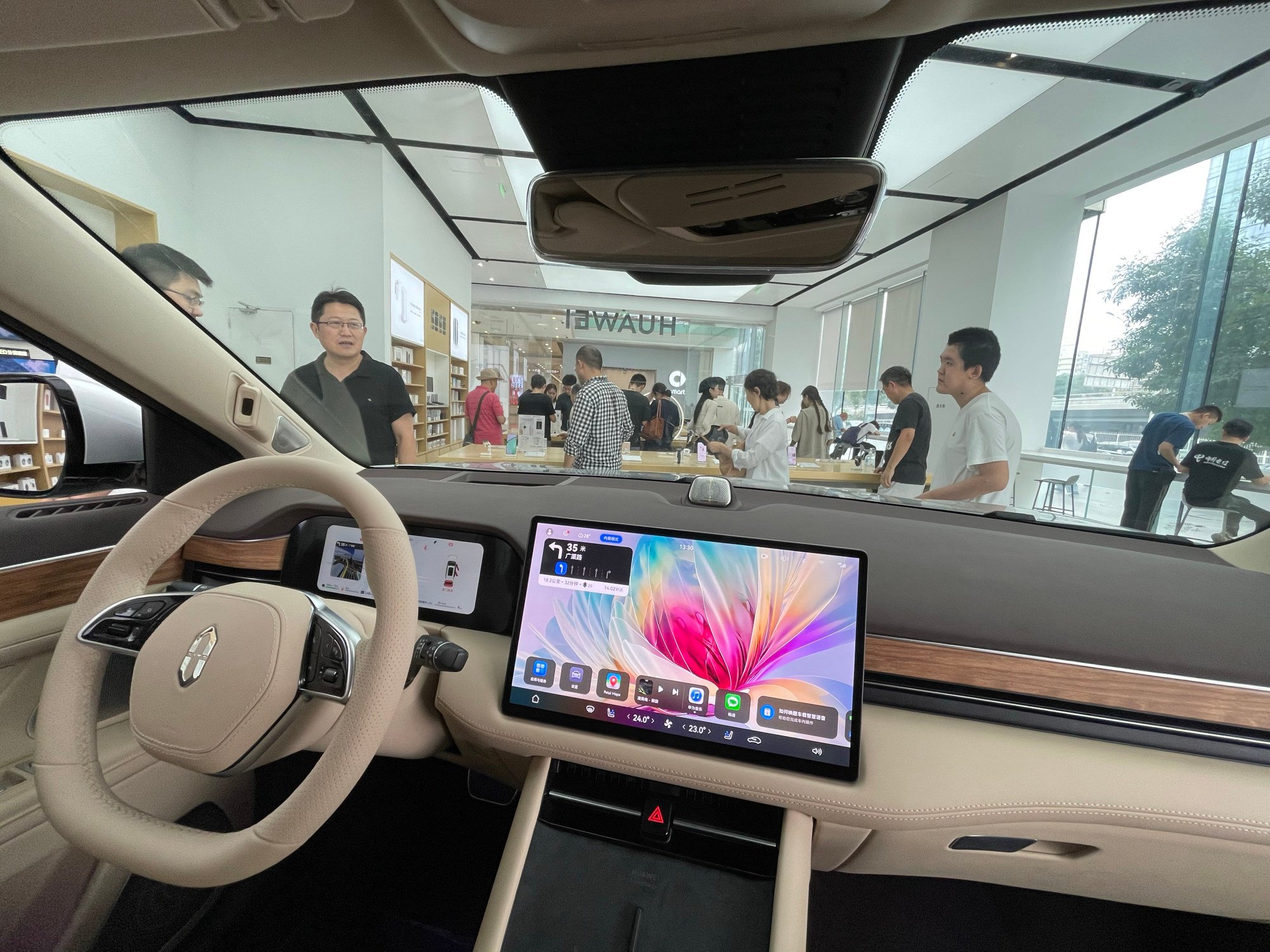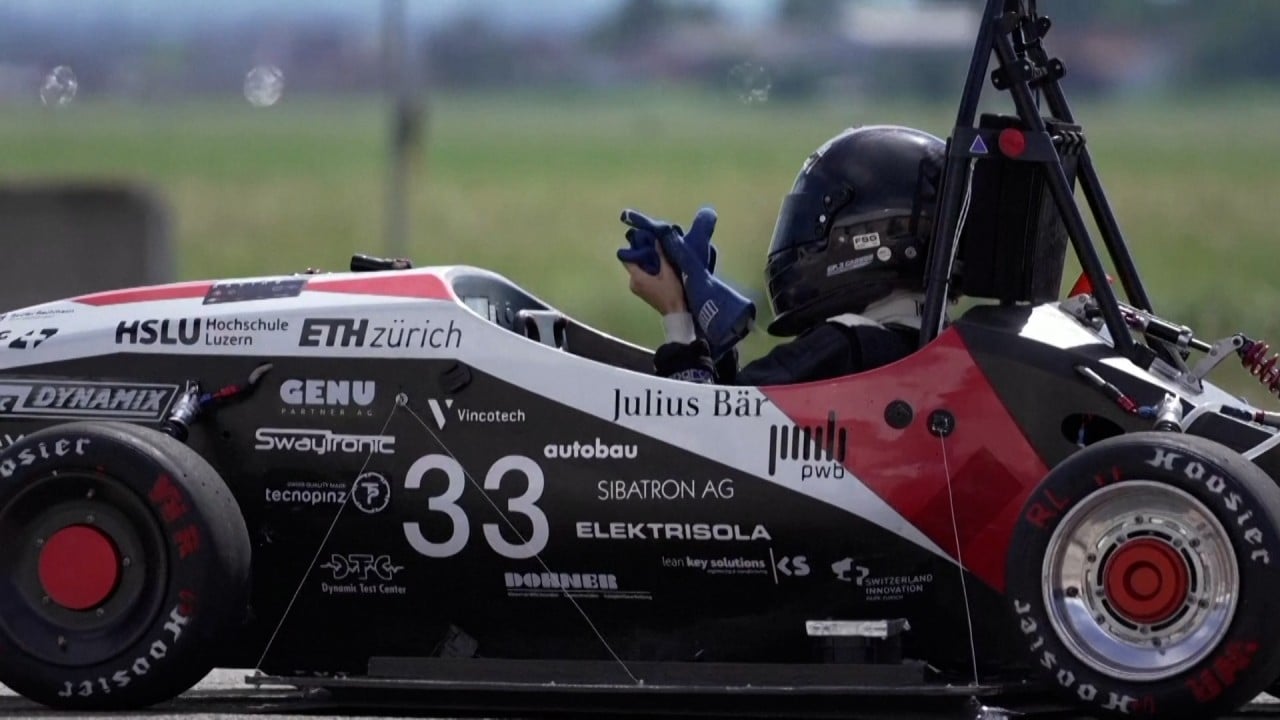
Huawei’s EV brand Aito hits sales jackpot with new SUV, will compensate buyers for delivery delays in sizzling market
- Chinese buyers ordered 60,000 M7s in a month, underlining the strong demand for domestic EVs in the sizzling market long dominated by Tesla
- The company, jointly launched by Huawei and carmaker Seres in late 2021, will pay buyers 200 yuan (US$27.35) for each day of delay, up to 10,000 yuan
The EV brand, jointly launched by Huawei and carmaker Seres in late 2021, said on Tuesday that every buyer will be awarded 200 yuan (US$27.35) for each day of delay, up to a maximum of 10,000 yuan.
“We have stepped up production [of M7 vehicles],” Aito said in a statement on its app. “We will try our best to hand the vehicles to you with quality ensured.”

For Aito buyers who ordered an M7 on or before October 16, the current waiting time is four weeks for the Plus version and six weeks for the Max version, Aito said.
At present, Aito is able to produce about 10,000 vehicles a month, and it will have to add shifts to execute all the orders quickly, according to Phate Zhang, founder of Shanghai-based EV data provider CnEVPost.
“The compensation for a potentially prolonged delivery was a pleasant surprise to Aito because it had not been prepared for strong sales of the new M7,” said Tian Maowei, a sales manager at Yiyou Auto Service in Shanghai. “But in this cutthroat market, if a company is not able to deliver new cars promptly, it will soon lose its market share because customers are lured away by other brands.”
The premium EV builders are likely to offer discounts soon to attract new customers as they strive to maintain their market share, Tian said.
The revamped M7 starts at 249,800 yuan, lower than the previous model launched in July 2022 by 40,000 yuan, or 13.8 per cent. The SUV’s driving range is 1,300 kilometres.
Aito is due to launch a brand new model, a full-size luxury electric SUV called the M9, in December, Yu announced during another event on September 25.


